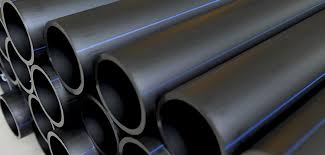Oct . 01, 2024 21:46 Back to list
HDPE Pipe Size Options from Leading Manufacturers for Your Industrial Needs
Understanding HDPE Pipe Sizes and Their Significance in Manufacturing
High-Density Polyethylene (HDPE) pipes have revolutionized various industries due to their durability, flexibility, and resistance to corrosion. The manufacturing of HDPE pipes involves precise measurements and standards, particularly concerning the sizes available in the market. Understanding these dimensions is crucial for engineers, contractors, and end-users, as the right size ensures optimal performance in applications such as water supply, drainage systems, and gas transport.
HDPE Pipe Size Standards
HDPE pipes are categorized based on several sizing standards, with the most common being the nominal pipe size (NPS) and the outer diameter (OD). The NPS is a dimensionless number expressing the pipe's approximate inside diameter, while the OD indicates the external measurement. These standards ensure that the pipes can connect with other piping systems and fittings seamlessly.
Typically, HDPE pipes range from small diameters of 16 mm (0.63 inches) to large sizes exceeding 1,200 mm (47 inches) in OD. The size selection usually depends on the specific requirements of the project, including flow capacity, pressure ratings, and installation space.
The Importance of Correct Sizing
Choosing the appropriate HDPE pipe size is vital for several reasons. Firstly, it influences the flow rates and pressure within the system. An undersized pipe can cause excessive pressure drops, leading to inefficiencies and potential failures. Conversely, oversized pipes may lead to increased costs without providing additional benefits.
Secondly, the correct pipe size significantly impacts installation and maintenance. Pipe fittings, valves, and connectors come in standardized sizes, so using the right dimensions reduces the risk of leaks and ensures compatibility. Moreover, using the proper size can streamline maintenance tasks, making inspections and repairs easier.
pipe hdpe size factory

Factors Influencing Pipe Size Selection
Several factors must be considered when selecting the appropriate HDPE pipe size for a given application
1. Flow Rate and Pressure Requirements High flow rates typically necessitate larger diameters to avoid bottlenecks. 2. Type of Fluid The viscosity and type of fluid being transported can affect the size selection. For instance, viscous liquids may require larger pipes to maintain efficient flow. 3. Length of Run Longer runs may demand larger pipes to counteract friction losses over distance.
4. Installation Environment Space constraints and accessibility may also dictate the specific dimensions of the pipes used, especially in urban settings or confined spaces.
The Role of Factories in HDPE Pipe Manufacturing
Pipe manufacturers play a crucial role in producing HDPE pipes that meet various size specifications. Utilizing advanced technology and automated processes, factories can produce pipes with precise dimensions that adhere to industry standards. Quality control measures are implemented at every stage to ensure that the pipes meet performance expectations, and durability metrics are upheld.
In conclusion, understanding HDPE pipe sizes is imperative for effective infrastructure development. The selection of the correct size influences not only the efficiency and sustainability of systems but also affects installation feasibility and overall project success. As the demand for HDPE pipes continues to grow due to their numerous advantages, knowledge of sizing and manufacturing practices will remain a cornerstone for professionals in the industry.
-
High-Quality PVC Borehole Pipes Durable & Versatile Pipe Solutions
NewsJul.08,2025
-
High-Quality PVC Perforated Pipes for Efficient Drainage Leading Manufacturers & Factories
NewsJul.08,2025
-
High-Quality PVC Borehole Pipes Durable Pipe Solutions by Leading Manufacturer
NewsJul.08,2025
-
High-Quality PVC Borehole Pipes Reliable PVC Pipe Manufacturer Solutions
NewsJul.07,2025
-
High-Quality UPVC Drain Pipes Durable HDPE & Drain Pipe Solutions
NewsJul.07,2025
-
High-Quality Conduit Pipes & HDPE Conduit Fittings Manufacturer Reliable Factory Supply
NewsJul.06,2025

